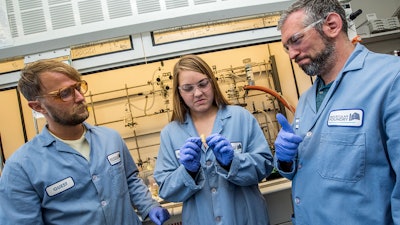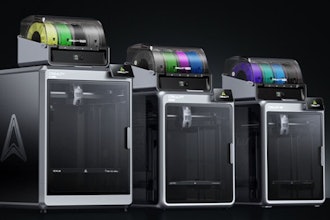
A recent discovery at a federal laboratory could lead to plastics that, unlike their contemporary cousins, could be completely recycled.
Scientists from Lawrence Berkeley National Laboratory this week detailed their work with poly(diketoenamine) in the journal Nature Chemistry. PDK, researchers said, can be broken down into its constituent molecules and repurposed as an entirely new material.
Conventional plastics are comprised of polymers, or large molecules, made up of smaller components known as monomers. Berkeley scientists said other chemicals often used to alter a polymer’s properties — such as its color, flexibility or toughness — tend to bind strongly to those monomers and prevent most of the material from being recycled. Even the most recyclable plastics, researchers noted, can only be turned over at a rate of 20 to 30 percent.
“We see an opportunity to make a difference for where there are no recycling options,” Brett Helms, who led the research team, said in a release.
Postdoctoral researcher Peter Christensen discovered the unique property of PDK while applying acid to an adhesive made from the material. After he noticed changes in the adhesive, a subsequent analysis by a nuclear magnetic resonance spectroscopy instrument found that the acid broke PDK down into its monomers.
The Berkeley team then showed that PDK’s bonds with added chemicals can be reversed by submerging it in an acidic solution — a breakthrough that could lead to a completely circular lifecycle for plastics. A wristwatch band, for example, could be turned into a computer keyboard.
If industry and policymakers embraced that potential, PDK could help alleviate a wide range of problems associated with plastic consumption — from ocean pollution and its presence in the food chain to the strain on landfills and current recycling systems.
Scientists hope to develop a broader range of materials with PDK, including textiles, foams and 3D printing materials, as well as explore incorporating plant-based components or other sustainable feedstock.




















